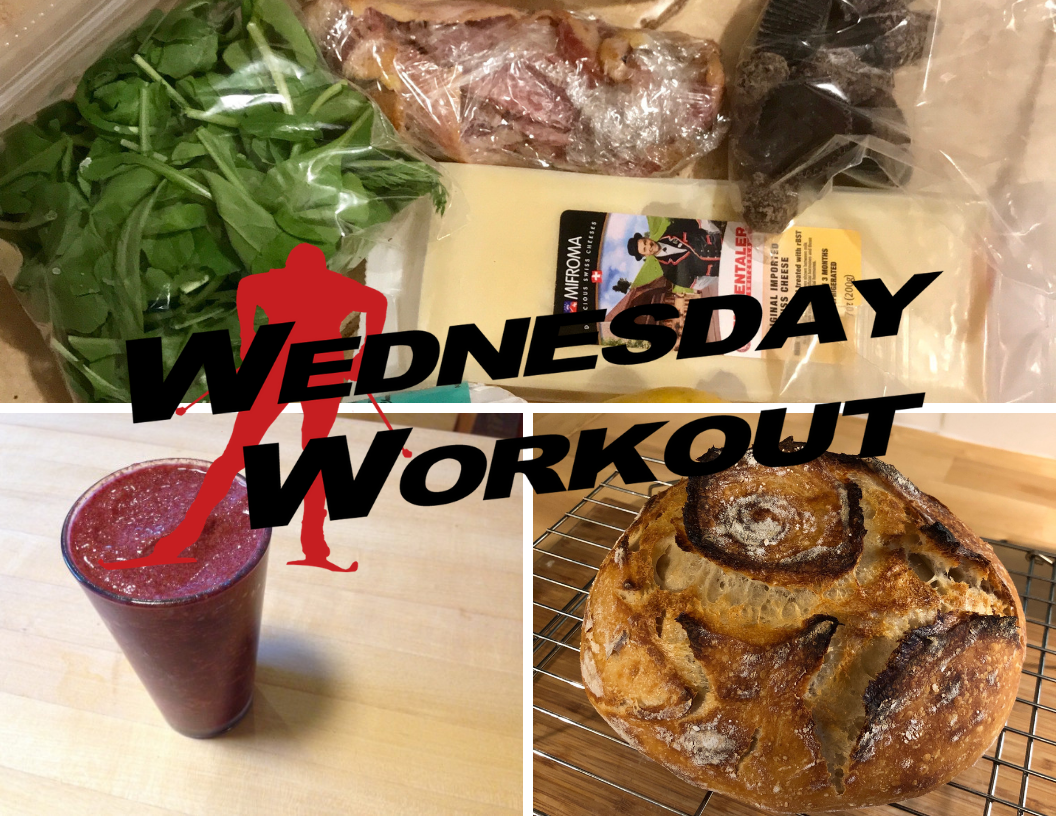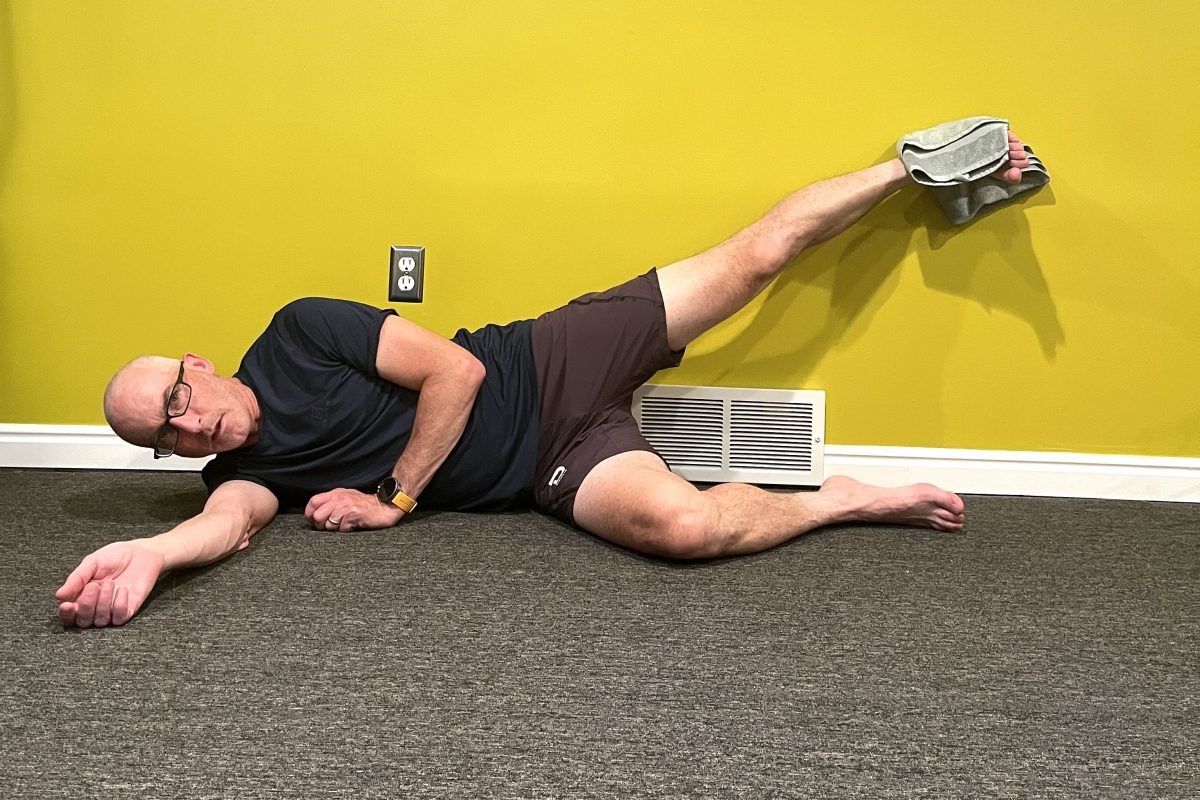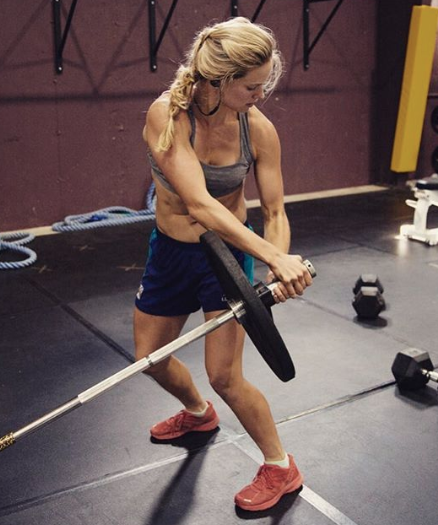From the dawn of sports nutrition when PowerBars were ubiquitous to the DIY world of handcrafted nibbles for athletes on-the-go and recovering, sports nutrition has become an industry.
For this Wednesday Workout, we wanted to revisit a few classic low cost and relatively simple items when it comes to nutrition. Without diving into the deep science, the basics are well agreed upon: you’ll need some protein, carbohydrates, and some ingredients to make it all palatable. We’re thinking a smidge of salt or sugar or even both for that savory combo.
The first recipe comes from Peter Minde and can be attributed to Skratch Labs. To Skratch Labs’ credit, although they are a manufacturer/marketer of their own line of pre-packaged sports nutrition products, their blog features great recipes that keep costs down and the nutrition/functionality ratio high. It’s a solid resource.
Bacon maple almond butter rice cakes
3 cups sweet rice, 4 cups of water
Bragg’s Amino acids to taste
salt to taste
maple syrup to taste
1/4 cup rice vinegar
1 cup warm almond butter
8 oz bacon
Cook rice. Cook bacon separately and drain fat. Cut the bacon into little pieces.
Mix Bragg’s, rice vinegar, maple syrup, salt in a bowl. When the rice is cooked, transfer to a large bowl and add Bragg’s salt, maple syrup, and rice vinegar.nnStir to mix thoroughly.
In an oblong baking dish, layer half of the rice, spreading with a spatula. Then layer the almond butter on top of the rice. Sprinkle bacon across almond butter. Cover with remaining rice. Refrigerate overnight.
In the morning, Cut into squares, and wrap each square in heavy aluminum foil. Freeze until ready to use. Yield should be 16 rice cakes.
The Kikkan Smoothie
This is as basic as they come: the recovery smoothie. This smoothie recipe was mined from a 2011 FasterSkier piece on featuring a Kikkan Randall over distance workout. To keep with the times, we might suggest you always use some type of red frozen berry – like a raspberry. When the smoothie concoction is blended up, you’ll see and think pink (or a shade of pink). Total Kikkan.
1 cup Greek non-fat plain yogurt
1 cup frozen berries
1 scoop protein powder
1/2 cup milk
1/2 cup juice
1 Tbsp honey.
Turmeric Beet Recovery Smoothie
This smoothie recipe is for those more daring. If you are into climbing, it’s kind of like jumping from a fourth class scramble to a directissimo on the Eiger’s north face. It came to FasterSkier from Claire Waichler way back in 2014.
It contains protein, potassium, iron, antioxidants, detoxifiers, and lots of anti-inflammatories.
(Quantities are a rough estimation)
Makes 1 blender full, 2 or 3 servings
1 medium beet, peeled
2 cups of milk
1 scoop or serving of protein powder – the one in my smoothie is 34g and vanilla flavored
2 cups of greens, spinach or kale
1 banana
A handful of candied ginger.
A turmeric finger/root
Ground cinnamon and nutmeg to taste. You can also substitute ground ginger and turmeric for the whole ingredients
Ice
Blend all the ingredients in a blender. Then guzzle.
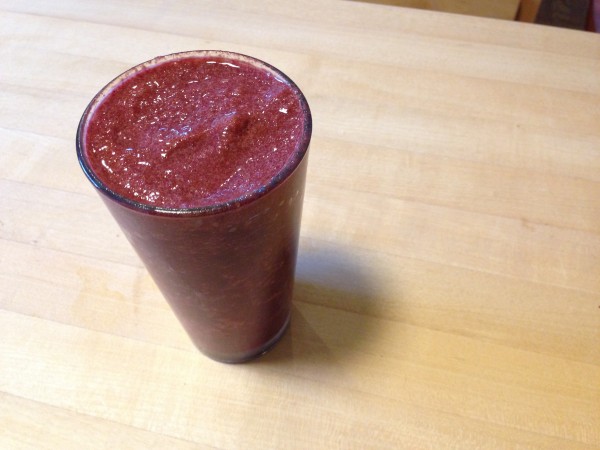
The Zoë
OK. Let’s digress for a bit. If you are ski-touring, as our glance at Instagram suggests many of you still are, you might have a rucksack to carry some on-the-go food. We asked Zoë Roy for an idea. Roy is busy this week (busy-trap busy) prepping for the PPP. What we got though was some culinary gold that highlights the umlot in her first name: it’s Euro-themed.
This first photo says it all.
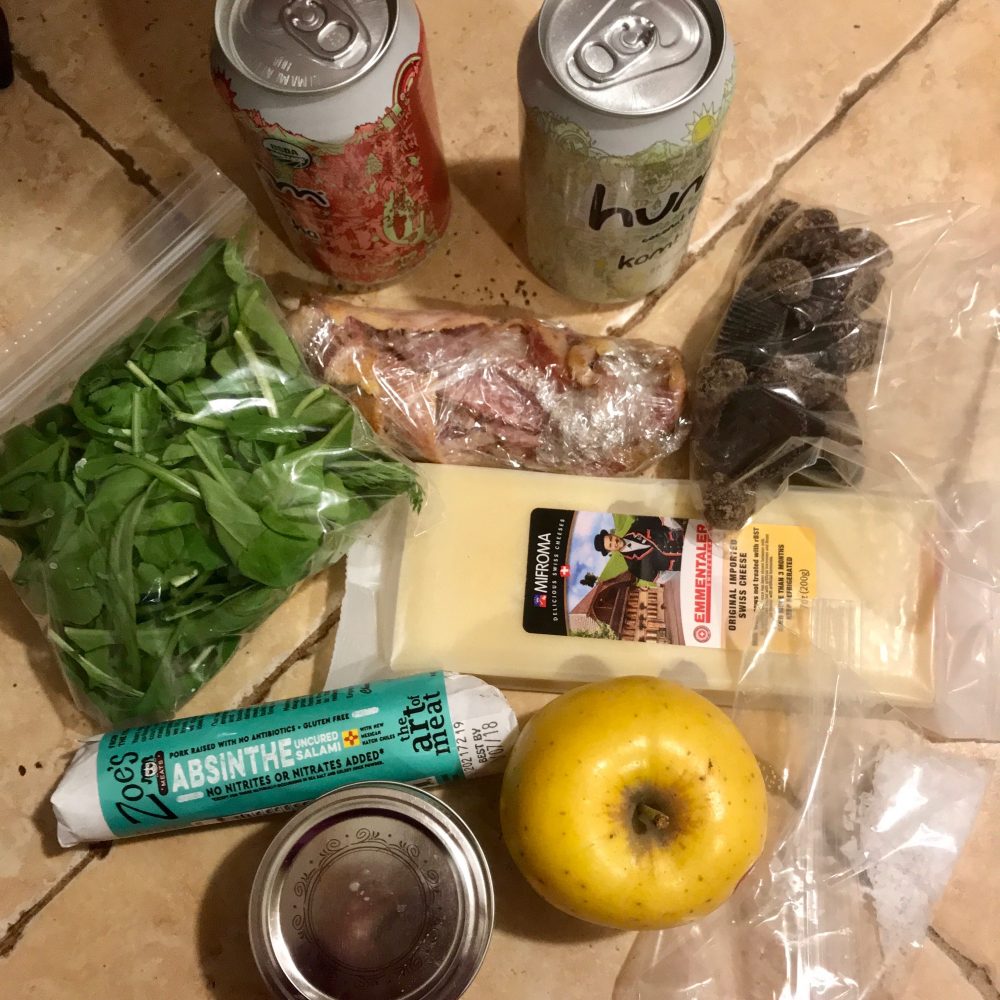
She’s packed greens, salami, jam, fruit, cheese, bacon, sweets, and kombucha. So good. So tasty. But it for sure is the type of on-the-go food requiring a slight stop.
Roy is also known around Bend for her homemade treats and meals. So we also asked for a shot of her freezer to better understand where she is coming from. The freezer, it is often said, is a peek into the soul. Here it is: Alaskan salmon, an Ocean Roll from Sparrow Bakery, homemade ice-cream and some other basics in there. (Note, no freezer burn on any items which indicates a steady rotation of goods.)
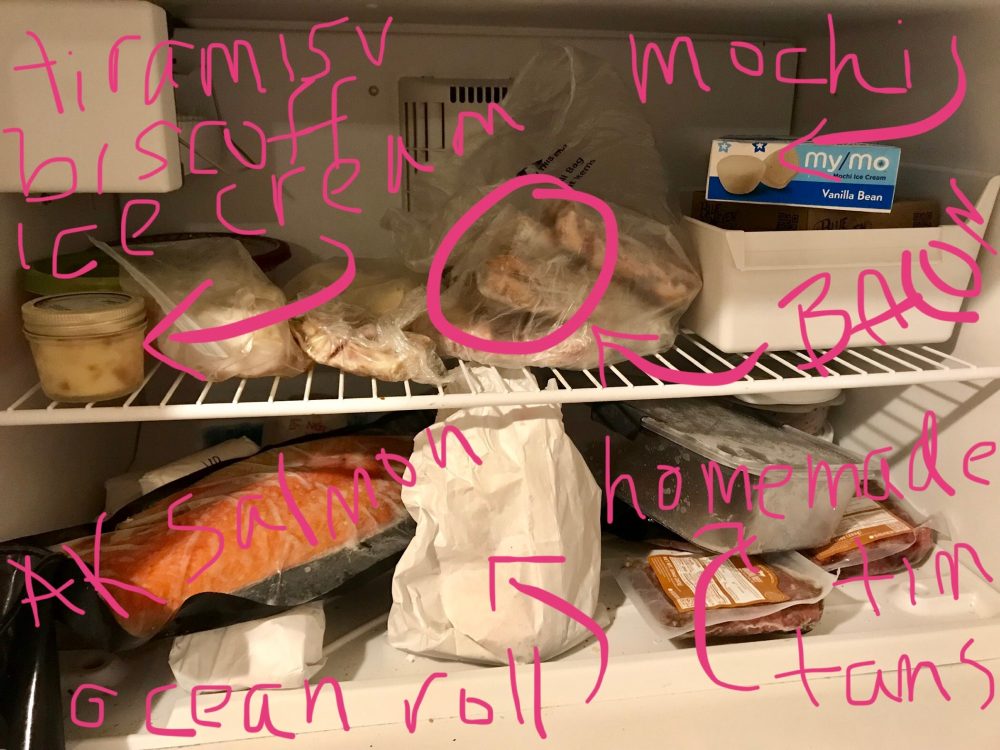
The Dak Delivery Vehicle
The delivery mechanism is key when it comes to ingesting food. Bread is basic. And it is perhaps humankind’s greatest achievement in nutrition delivery mechanisms. Take a look at Dakota Blackhorse-von Jess’s homemade sourdough – tell us it’s not a golden round of raised dough (see photo).
Once the bread is cooked and sliced, it becomes the perfect vehicle to deliver protein to the system. Fry an egg, toss it on a slice. The sky is the limit here in terms of combining the fundamentals of recovery nutrition with the downright tastiness of the sourdough.

Here’s the recipe:
200g Sourdough Starter
700g 80° water
900g 00 flour (bread flour)
100g Whole Wheat Flour
Combine by hand, let rest for 30-60 minutes
20g salt
Fold to incorporate salt
Let rest 30 minutes
[Repeat 4 times]
Fold (4-fold method)
Let rest 30 minutes
Split dough into two balls, fold to center, put seam down, shape and cover for 10 minutes.
Reshape to build surface tension, place dough ball seam side up into proofing basket
Let proof for 3-6 hours (room temp) or in the fridge overnight (up to 48 hours) for a more sour tasting loaf.
Place Dutch Oven in the oven and turn on to 500°. Let warm up for 30’.
Turn oven down to 450°
Dump loaf into Dutch oven (seam down), score the top, cover and cook for 30′.
Remove lid and cook for an additional 10-20 minutes. Look for dark brown crust (experience will let you cook to suit taste).
Remove loaf and let cool on rack – DO NOT CUT WHILE HOT – this is part of the internal cooking.
Once the crust is slightly warm to the touch (~30’), slice and enjoy!
When we asked clarification on “Place Dutch Oven in the oven”, Dak sent this photo.
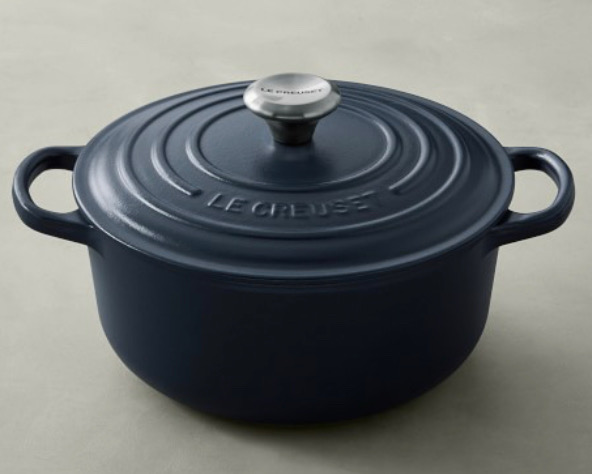
The Basic
Say you are a college kid or an upstart SMS T2 skier. Or just not that motivated to bake bread. You still need a post-workout nutrition delivery vehicle. There’s the bagel. Nothing perhaps could be more basic than the bagel. Less regal than the sourdough, but tasty too. And perfect for piling on protein and fats.


